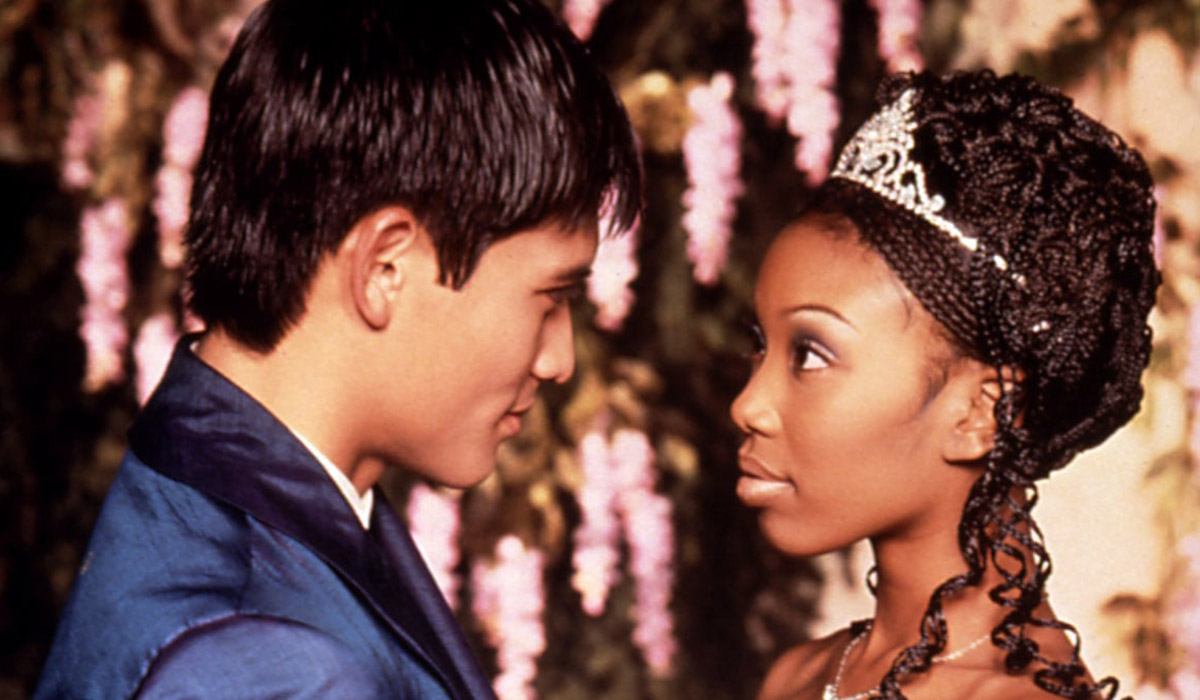While each month of the year contains multiple cultural/historical celebrations and acknowledgments, one usually dominates the other if they both last more than a day. Yet, something remarkable began to happen on Twitter when Dr. Nancy Yuen posted this image as a celebration of both Lunar New Year and Black History Month.
Y’all already know I gave this film five out of five glass slippers when I ranked all of the (main) Cinderella adaptations of the last three decades. On top of being just a great film with outstanding vocal performances from everyone, it also was the most high-profile casting of Black Cinderella ever. Dr. Yuen didn’t just share that image as a fun gag. She’s fully aware of the historical significance of this film.
In 2016, she published a book looking at the inequities faced by performers and behind-the-scenes workers of color in Reel Inequity: Hollywood Actors and Racism, and co-authored the 2017 Asian on TV study. Like with Brandy’s performance of Cinderella, the casting of Paolo Montalbán as Prince Charming also made history as one of the most high-profile roles for a Philiphinx American actor (that wasn’t playing someone of another race). Montalbán himself even shared this image online.
Others share their favorite moments of on screen friendship & love
After Dr. Yuen’s post went viral, people began sharing their own Black History Month and Lunar New Year blasian duos.
One of the most popular outside of her Cinderella example was the team-up of Bruce Lee and Jack Kelly in the 1972 film Enter The Dragon. This martial arts film came up when the blaxploitation genre became a force to be reckoned with. Lee and Kelly’s work would inspire future hip-hop legends like Wu-Tang Clan, games like Street Fighter, and anime like Afro Samurai.
This was a moment, and they set the blueprint regardless of what white audiences wanted. Enter The Dragon was also Lee’s final completed film before his death.
In addition to the friendships, people shared their favorite canon relationships and character/actor ships.
The Nerds of Color shared a real-life couple in entertainment, directors Lulu Wang (Posthumous and The Farewell) and Barry Jenkins (If Beale Street Could Talk, Moonlight, and The Underground Railroad).
Beyond the screen solidarity
Some took this beyond the imagination and entertainment spaces to share real collaborations and activist coalitions between Black and Asian American communities. One of these examples is the late Lee and James Boggs.
They spent over 40 years fighting for Black and Asian liberation in the U.S., from the 1950s to their passing in the ’90s and 2010s. Anti-racist scholar Ibram X. Kendi spoke to author Stephen M. Ward about his 2020 book on the legendary duo, The Revolutionary Lives of James and Grace Lee Boggs.
Beyond the individual cases, people sharing Black and Asian solidarity in terms of demanding action against white supremacy from those of influence (politicians, business leaders, etc.) also made the rounds. With this came the interesting phrase “Yellow Peril Supports Black Power.”
The phrase is in continuous reclamation. First, “Yellow Peril” was used against Chinese migrants in the 1800s (through today) and began to be reclaimed in the 1960s. Then, the combination of “Yellow Peril Supports Black Power” came a photo of Japanese American activist (and the only Asian person to hold a leadership position in the Black Panther Party) Richard Aoki holding a sign with those words in 1969.
Decades later, documents revealed Aoki as an FBI spy who infiltrated the Black Panther Party. Some out of ignorance, and some out of a desire to reclaim the phrase, began using it again, especially during the Black Lives Matter and Stop AAPI Hate protests in 2020.
Xenophobia in the Black community and anti-Black racism in the Asian community are persistent barriers to many navigating these communities. Despite this deadly combination, there is a lot of shared history both on the screen and in history, which we can celebrate and learn from every day.
(image: ABC/Disney.)
The Mary Sue may earn an affiliate commission on products and services purchased through links.
—The Mary Sue has a strict comment policy that forbids, but is not limited to, personal insults toward anyone, hate speech, and trolling.—
Have a tip we should know? [email protected]
